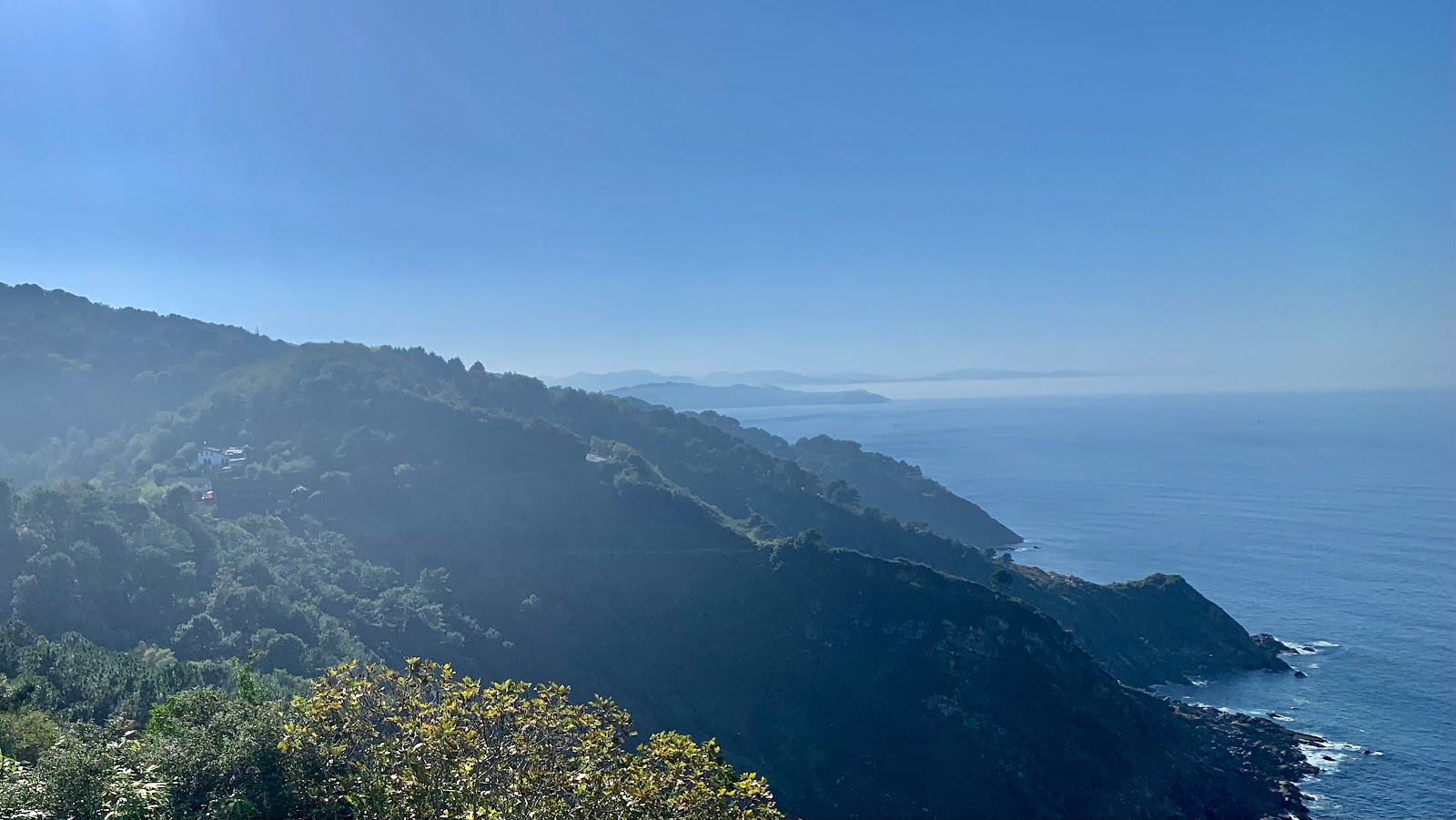 |
| You can just make out our hotel in the gap on the left |
Though half the size of Bilbao, San Sebastián is certainly the most well known city in the Basque Country. It doesn’t have as much documented history as many other towns in Spain; no Roman ruins for instance. Seized by Napoleon in 1808 it was burnt to the ground by the Brits in 1813. So, what exists today largely dates back to 1863 when the Spanish royals began to visit on summer retreats and encouraged its development as Spain’s answer to Biarritz, the iconic Belle Époque resort in the French Basque Country.
The attraction has always been its splendid, curved beach. Largely enclosed, it had virtually no surf so was ideal for people who were exploring the new fad of sea bathing.
Today, it still seems to be a popular destination for well to do young people. Walking around the beach on the sidewalk we heard as much American English as we typically hear in Barcelona.
A high point for us was the fascinating San Telmo Museum which focuses on Basque culture and history. We learned a lot about this obscure people. After our visit, we had a delightful lunch at the attached Zazpi Cafe.
On our last day, we drove to Hondarribia (Fuenterrabia in Spanish). Built on the west bank of the Bidasoa River where it empties into the Bay of Biscay, one can look right across the river at Hendaye, a Basque city in France. Due to its strategic location, Hondarribia has always been fortified, fought over, and wealthy. We found it to be a delightful last stop before driving back to Bilbao airport for our return to Málaga.
What will I remember from our brief foray to the Basque Country? Green hills, rugged coast, warm smiles and that “tx” in Euskara is pronounced as a “ch.” For example, consider those lovely delicacies - pintxos.










No comments:
Post a Comment